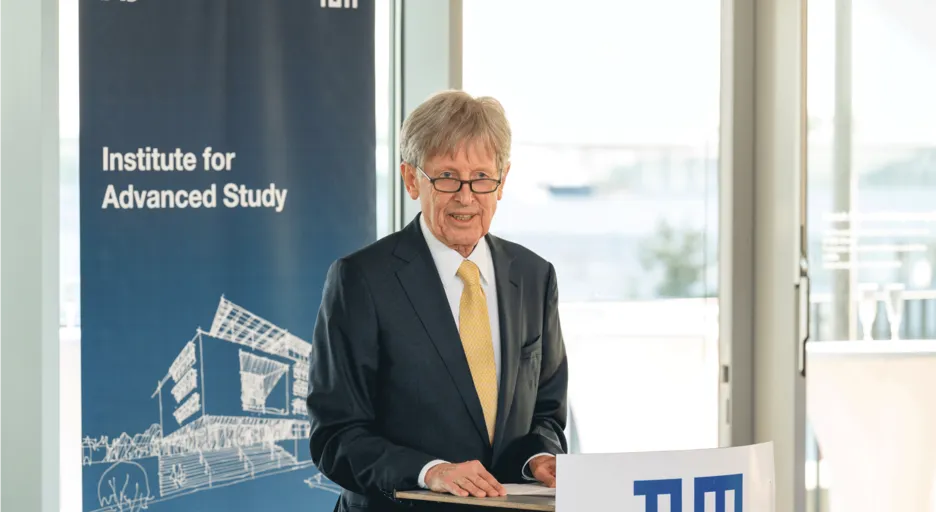TUM-IAS Director’s Message

Image: Astrid Eckert
Sustainability is the major challenge confronting society and science today. A look at the UN’s 17 Sustainable Development Goals (SDG) reveals that research faces immense tasks. There are numerous opportunities to utilize the great potential of interdisciplinary, networked thinking and working collaboratively. The preventive approaches of the WHO “One Health” concept aim to defuse the most significant health problems of all, such as infectious diseases and many chronic diseases. Engineers are needed on many fronts to develop technologies geared toward creating humane and nature-friendly living conditions for everyone on our planet. The spectrum of work in the technology sector is extremely diverse and highly complex, and this also applies to basic scientific research. The latter creates the basis for translating or testing new, sustainable processes.
That is why research and other activities on sustainability are taking an increasingly prominent role at the TUM-IAS. In 2023, 49 of our 80 TUM-IAS Focus Groups worked on topics that were related to the UN’s Sustainable Development Goals. Last year, we were able to award the Sustainability Awards supported by the Nobel Sustainability Trust for the first time. The winners were Prof. Elena Bou and Lord Nicholas Stern. The selection process was in the hands of the TUM-IAS, as was the content design for the Nobel Trust Summit held in November 2023 in Munich, where the prizes were awarded (see chapter “Actions, Awards, Events”).
The new Dieter Schwarz Courageous Research Grant marks a new milestone for TUM and for the TUM-IAS. With annual funding of one million Euros, it represents the most extensive internal TUM research program and is entirely dedicated to Digitization and Sustainability. We, at the TUM-IAS are honored to lead and implement this new, groundbreaking program.
In addition, another Dieter Schwarz Fellowship supports research in subject areas offered by TUM on its campus in Heilbronn. The new programs expanded our activities significantly, and we were able to announce both of them for the first time last year. The first Fellows will be appointed in 2024 (see chapter “Actions, Awards, Events”).
The new Seminar Series of European Universities on Sustainability, launched in autumn 2023, not only brings together scientists from research and academic institutions in Eastern, South-Eastern, and Central Europe, but also addresses “sustainability” as a core element of all seminars at the TUM-IAS. At present, the online event enables participants from more than eight universities to gain an overview of interdisciplinary sustainability research and to establish new contacts (see chapter “Actions, Awards, Events”).
A funding line close to my heart is the Philosopher in Residence. Innovative research in the natural and health sciences, as well as in technical disciplines, raises numerous questions – both of an internal nature and of social significance. This necessitates deeper reflection and classification in the context of future-oriented social developments related to sustainability and resilience. Thanks to the support of the TÜV SÜD Foundation and the TUM Excellence Strategy, we were able to start this year with two philosophers: Prof. Roberto Giuntini from the University of Cagliari and PD Rico Gutschmidt from the University of Konstanz and ETH Zurich (see chapter “Welcoming Our New Fellows”).
Lastly, on our website, you can now enjoy short video clips with some of our active and alumni Fellows from Argentina, Denmark, Ireland, Italy, Sweden, and the USA describing their TUM-IAS research projects – concisely and comprehensibly for non-experts!
I would like to express my gratitude to our friends and supporters: Siemens AG, the TÜV SÜD Foundation, the Dieter Schwarz Foundation, the Nemetschek Innovationsstiftung, and the Nobel Sustainability Trust. Your support is instrumental in bringing our ideas to life, getting new things off the ground, and possibly launching new initiatives.